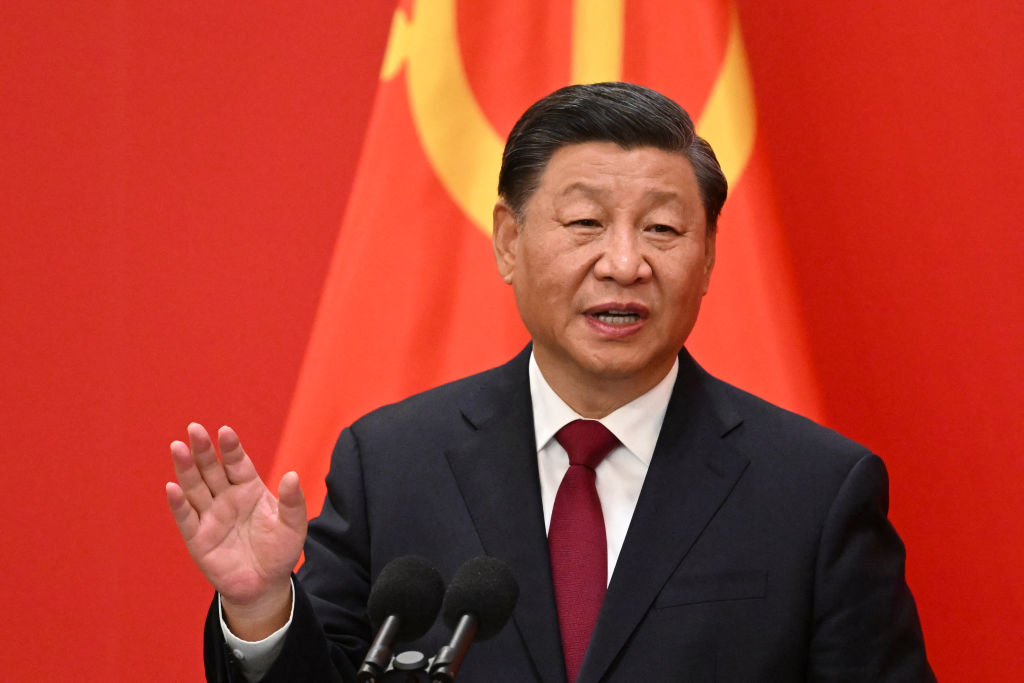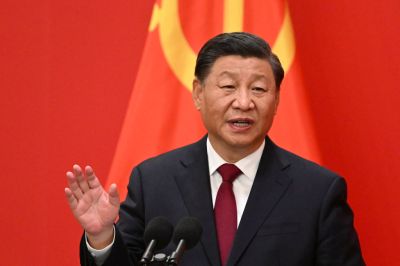The House Select Committee on the Strategic Competition Between the United States and the Chinese Communist Party held its first hearing this week. In interviews and joint statements Chair Mike Gallagher, a Republican and ranking member Raja Krishnamoorthi, a Democrat, have made it clear they are determined to make this committee a bipartisan project. Going forward, they will have their work cut out for them.
While it’s true there is a remarkable spirit of bipartisanship among politicians and policy experts that we are—and should be—entering a new era of confrontation with China, that consensus is actually more superficial once you look below the headlines of the press releases. While nearly all the players say we need to take the China threat seriously, what they mean by “the China threat” varies wildly.
That’s because the “China threat” serves as a kind of all-purpose justification for various preexisting agendas and ideological commitments. On both the left and right, the economic “threat” from China provides an excuse to peddle decades-old ideas. For Democrats who champion green technology, “independence” from China is an excuse for massive domestic subsidies. For Republicans eager to make the GOP a “workers party,” Chinese competition is a great talking point for “onshoring,” “buy American” protectionism, and industrial policy.
Defense hawks see the rise of China—coupled with its view of Taiwan—as a justification for increased defense spending most would favor anyway. In other corners of the right, now that Islamism is no longer seen as the “civilizational” foe it once was, some nationalists are eager to cast China as our defining enemy.
There are good arguments—and bad—bound up in all of this, which is precisely why Gallagher’s committee, and policymakers generally, need to untangle the Chinese knot.
For instance, it’s a good sign that the committee’s title targets the Chinese Communist Party and not China itself. Both as a matter of statecraft, we should distinguish between the authoritarian regime that rules China and the people of China.
Similarly, we shouldn’t glibly conflate China’s economic challenge with its military-strategic threat. Both are real, but they are very different things and do not necessarily go hand-in-hand.
In general, the economic threat from China is exaggerated. Things like China’s theft of intellectual property are real problems, but many American domestic maladies attributed to China’s growth have more to do with the challenges of automation and bad economic policy. The yuan will not replace the dollar as the world’s reserve currency, because the Chinese regime will never relinquish its currency controls. China’s aging population is a time bomb for a country that may be rich in the aggregate but is far poorer than America per capita.
More importantly, economic “competitiveness” has always been an incoherent concept. A rich China would be good for America and the world—if China had a good government. Trade creates winners and losers, but it creates more winners than losers. If China became a constitutional democracy like Japan, it would be in our interest for it to become rich.
In other words, China’s threat comes primarily from the nature of the regime itself. And that threat is worsening because President Xi Jinping has been turning his back on the economic model that lifted his country out of poverty. He is returning to authoritarian measures and cracking down on private enterprise to reassert state control over the economy in pursuit of becoming a “modern socialist power.” His crackdown on “Big Tech,” free speech, and independent journalism is a dictator’s classic attempt to silence any competing source of authority. This has come at the cost of economic growth, particularly during Xi’s disastrous handling of the COVID pandemic. Authoritarianism also hurts innovation. It turns out that police states are not as conducive to creating cutting-edge technologies—like vaccines or artificial intelligence—as free societies.
One can get distracted by the chicken-or-egg question—which came first, increased authoritarianism or economic stagnation? The truth is it’s probably both. His designs on Taiwan serve his nationalist ends, but also distract from his domestic failures. “Xi Jinping has nurtured an ugly form of Chinese nationalism,” as The Economist noted last year, in which the Japanese, South Koreans, and Westerners are demonized, as are “secondary devils” (Chinese who “collaborate” with outsiders). These messages, staples of state-run media and the education system, give Xi political cover to blame domestic problems on foreign meddlers.
This points to what may be the real danger. I’m all for taking a hardline on China, but that line should provide a path toward China being a friendly economic competitor not an implacable strategic foe.







Please note that we at The Dispatch hold ourselves, our work, and our commenters to a higher standard than other places on the internet. We welcome comments that foster genuine debate or discussion—including comments critical of us or our work—but responses that include ad hominem attacks on fellow Dispatch members or are intended to stoke fear and anger may be moderated.
With your membership, you only have the ability to comment on The Morning Dispatch articles. Consider upgrading to join the conversation everywhere.